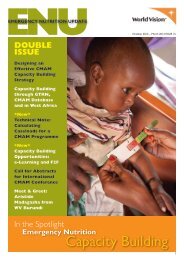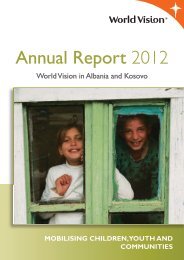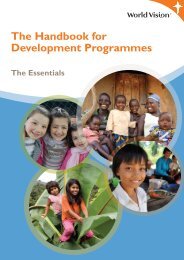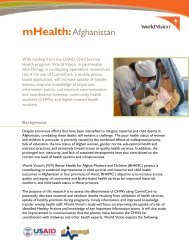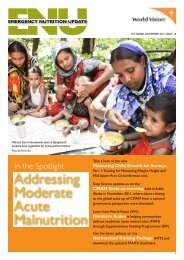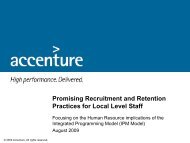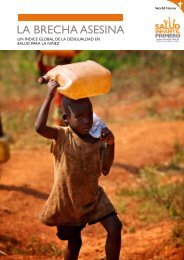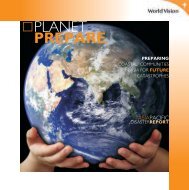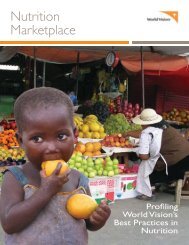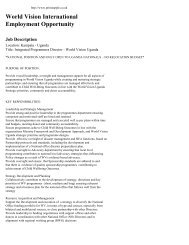Download Publication - World Vision International
Download Publication - World Vision International
Download Publication - World Vision International
Create successful ePaper yourself
Turn your PDF publications into a flip-book with our unique Google optimized e-Paper software.
Livelihood<br />
Beneficiaries<br />
28,086 men and women<br />
Livelihood is one of the key sectors in WVIN. In the areas (ADPs)<br />
that WVIN works in, it seeks to increase the income and asset<br />
of families by diversifying livelihood options, specifically that<br />
of agriculture. Livelihood Projects in ADPs seek to increase the<br />
agricultural production of marginal families and build the capacity<br />
of community-based cooperatives. Projects include high value/<br />
indigenous crop promotion, leasehold farming, marketing, as well as<br />
skills development with the help of different stakeholders.<br />
In FY 2012, WVIN implemented livelihood projects in 12 ADPs, in<br />
Udayapur, Morang, Sunsari, Kathmandu, Lalitpur, Bhaktapur, Lamjung,<br />
Rupandehi, Kaski, Jumla, Kailali and Doti districts.<br />
In FY 2012, capacity-building and technology transfer in<br />
agriculture and livestock production were carried out in different<br />
ADPs. Promoting technology at community level training and<br />
demonstrations, WVIN helped farmers grow high value crops,<br />
kitchen gardens, as well as farm livestock (poultry, goats, and<br />
cattle). In the cultivation of crops farmers were also encouraged to<br />
use local resources for fertilizers and pesticides. This initiative<br />
has helped increase farms’ long term productivity, to reducing<br />
dependency on external materials and production costs. The<br />
promotion of vegetable growing has increased the consumption<br />
of vegetables contributing to improved family and child<br />
nutrition. The promotion of vocational skills training has enabled<br />
households to find alternative sources of income and establish<br />
small businesses. Capacity-building initiatives carried out with<br />
community-based cooperatives helped provide improved<br />
business facilities and services to members in the communities.<br />
Efforts to strengthen the capacity of different community-based<br />
groups helped increase group savings which has helped with the<br />
provision of credit. WVIN also coordinated at the local level<br />
with different stakeholders and government agencies such as<br />
DADO, DLSO and DCO.<br />
In FY 2012, WVIN reviewed its livelihood secondary strategy. To<br />
ensure more technical support and better implementation of projects,<br />
area technical staff were also placed in the district programmes.<br />
15



